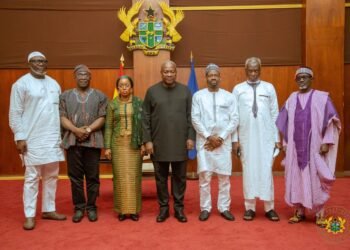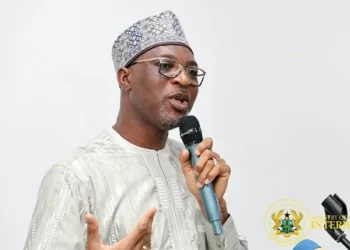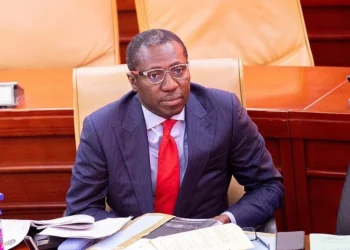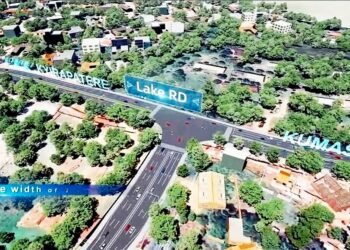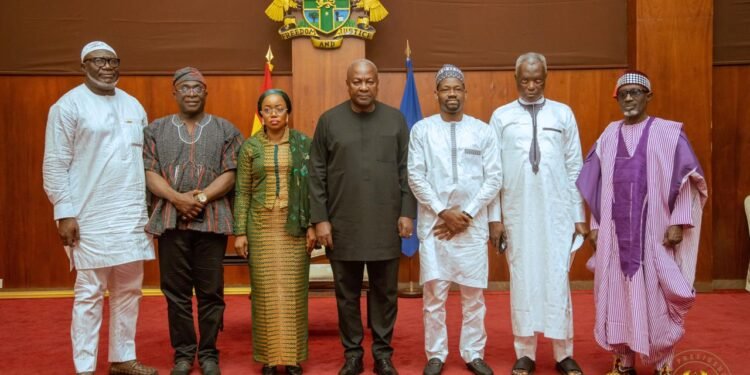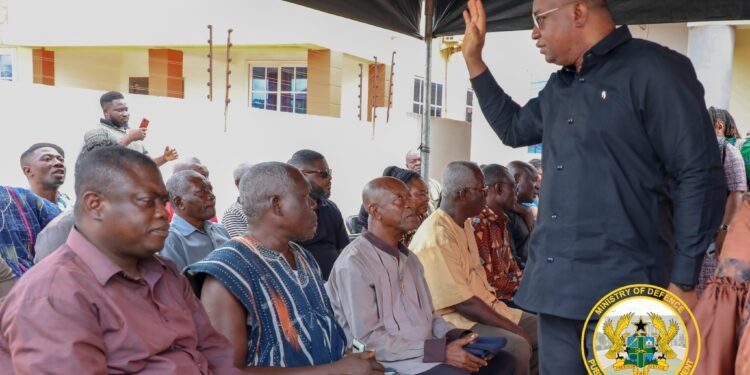The government has announced an ambitious and comprehensive retooling programme for the Ghana Armed Forces (GAF), beginning in 2026, as part of a broader effort to modernise national defence capabilities and respond to emerging security threats.
The initiative, detailed by Minister for Finance and acting Minister for Defence, Dr. Cassiel Ato Forson, during the presentation of the 2026 Budget Statement to Parliament, represents one of the most significant defence investments in recent years, targeting upgrades across the Army, Navy and Air Force.
Dr. Ato Forson opened the defence section of his presentation with a solemn tribute to the late Dr. Edward Kofi Omane Boamah, whom he described as “a fallen hero of the tragic helicopter crash and the brain behind the strategy to retool the Ghana Armed Forces.”
He emphasised that the retooling effort is a continuation of the strategic vision Dr. Omane Boamah helped craft: a long-term plan to strengthen Ghana’s defence posture amid increasingly complex regional and global security challenges.
According to the Minister, the retooling programme will modernise logistics, equipment and infrastructure across all three branches of the GAF. He stressed that the goal is to ensure that the country’s defence forces are fully equipped to fulfil their constitutional mandate and to respond effectively to threats such as terrorism, piracy, transnational organised crime, and instability within the sub-region.
“The Government of Ghana is embarking on a comprehensive retooling and modernisation programme to strengthen the operational effectiveness of the Ghana Armed Forces”.
Minister for Finance and acting Minister for Defence, Dr. Cassiel Ato Forson
Army’s Expansion Drive
For the Ghana Army, Dr. Ato Forson disclosed that 2026 will be a pivotal year, particularly in efforts to enhance land operations and overall readiness. He highlighted longstanding concerns surrounding a 2020 supplier’s credit agreement worth US$80 million between the Government of Ghana and ELBIT Systems Land Ltd for the procurement of nineteen Armoured Personnel Carriers (APCs) and associated defence systems.

“Sadly, despite the disbursement of US$40 million to the supplier, the Ghana Army has not received a single APC,” he told Parliament. To prevent further financial loss and salvage value for the state, the government has initiated renegotiation of the agreement, with plans to re-submit it to Parliament for consideration.
The Minister indicated that resolving this issue is essential to advancing the Army’s broader retooling needs and ensuring accountability in defence procurement.
Navy and Air Force’s Investment Boost
Turning to the Ghana Navy, Dr. Ato Forson described it as a “key pillar in safeguarding the nation’s maritime domain,” with responsibilities ranging from maritime security and fisheries protection to counter-piracy, anti-smuggling efforts, and search-and-rescue operations within Ghana’s Exclusive Economic Zone (EEZ).
However, he acknowledged that the Navy is currently constrained by an ageing fleet, weak maintenance infrastructure, and delayed construction of critical Forward Operating Bases such as the one at Ezinlibo in the Western Region.
To address these gaps, the government will, in 2026, acquire two 72-metre Offshore Patrol Vessels (OPVs) outfitted with helipads and modern combat systems. These vessels, he said, will “conduct long-endurance patrols, safeguard the EEZ, prevent maritime crimes, protect critical offshore infrastructure, and support bunkering operations and oil field security.”
On the Ghana Air Force, the Minister highlighted its crucial role in air defence, aerial surveillance, maritime patrols, troop and logistics transport, medical evacuations, and disaster response.

Despite this centrality, the Air Force also suffers from an ageing fleet and high-maintenance aircraft that weaken operational readiness. To address these challenges, the government will begin procurement processes in 2026 for four modern helicopters, one long-range aircraft, and one medium-range aircraft.
Dr. Ato Forson clarified that these acquisitions are part of a phased approach, noting that “these aircraft are expected to be delivered in four years’ time, if the procurement processes are completed in 2026.”
Building a Fit-for-Purpose, Resilientdefence Force
The Minister underscored that the overarching goal of the retooling programme is to build a fit-for-purpose, resilient defence force with capabilities suited to contemporary and future threats.
He stressed that modernising the GAF is not merely a defence sector priority but a national imperative that underpins economic stability, protection of natural resources, and the safeguarding of territorial integrity.
The investments planned for 2026 and beyond, he added, form part of a broader national security strategy to enhance coordination across security agencies and strengthen Ghana’s position within regional security frameworks.

Dr. Ato Forson’s announcement signals the government’s commitment to reversing years of inadequate investment, procurement challenges, and systemic delays that have hampered the Armed Forces.
As Parliament prepares to consider the renegotiated APC agreement and future procurement plans, attention will be focused on ensuring transparency, value for money, and adherence to international standards in defence acquisitions.
The late Dr. Omane Boamah’s legacy, reflected in the strategic foundations of the retooling drive, continues to shape national efforts to build a stronger, more capable Ghana Armed Forces.
READ ALSO: 2026 Budget: Ghana’s Economy Rebounds as Debt Accumulation Drops to Neg. 13.3%




